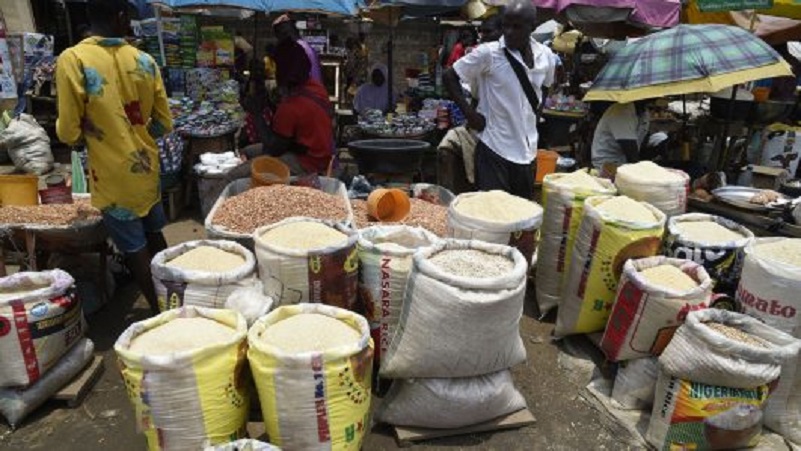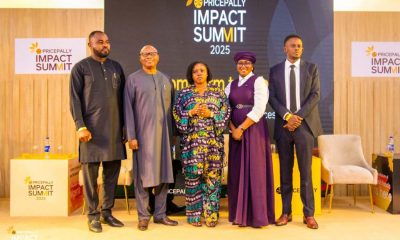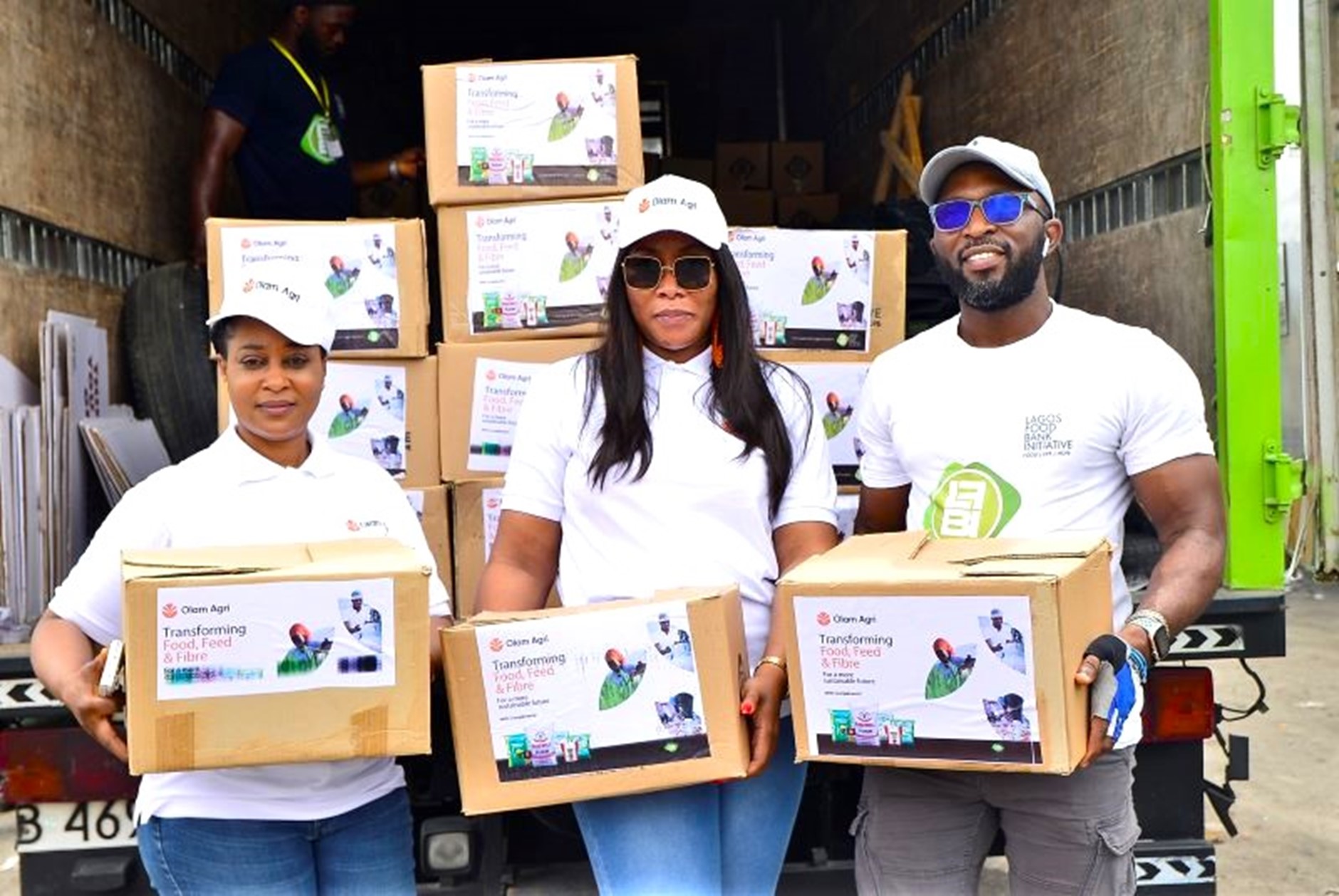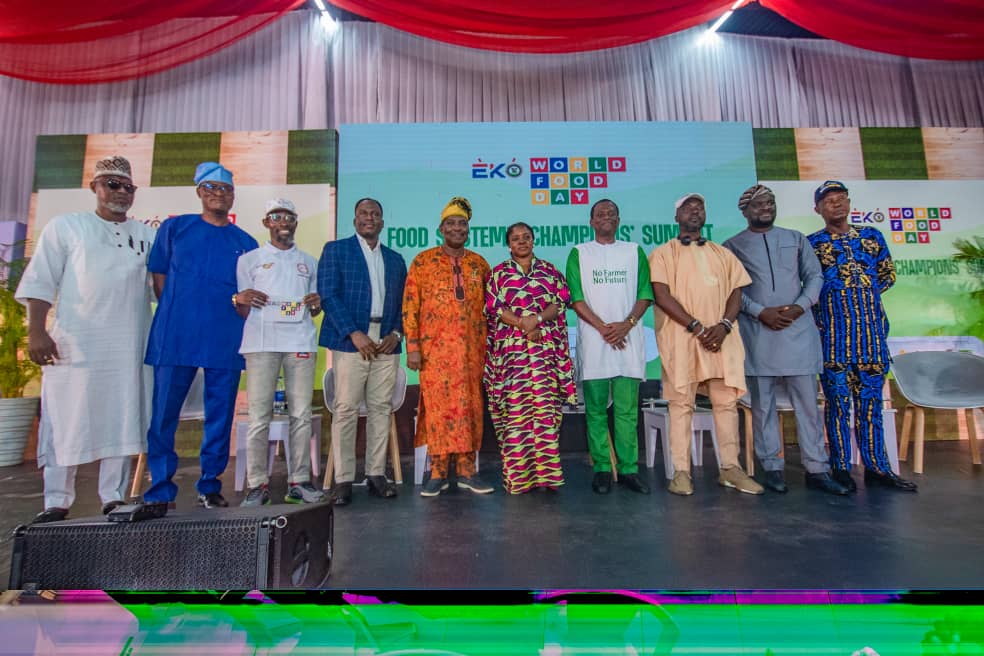World
Can Africa Prioritise and Solve its Food Security Challenges?
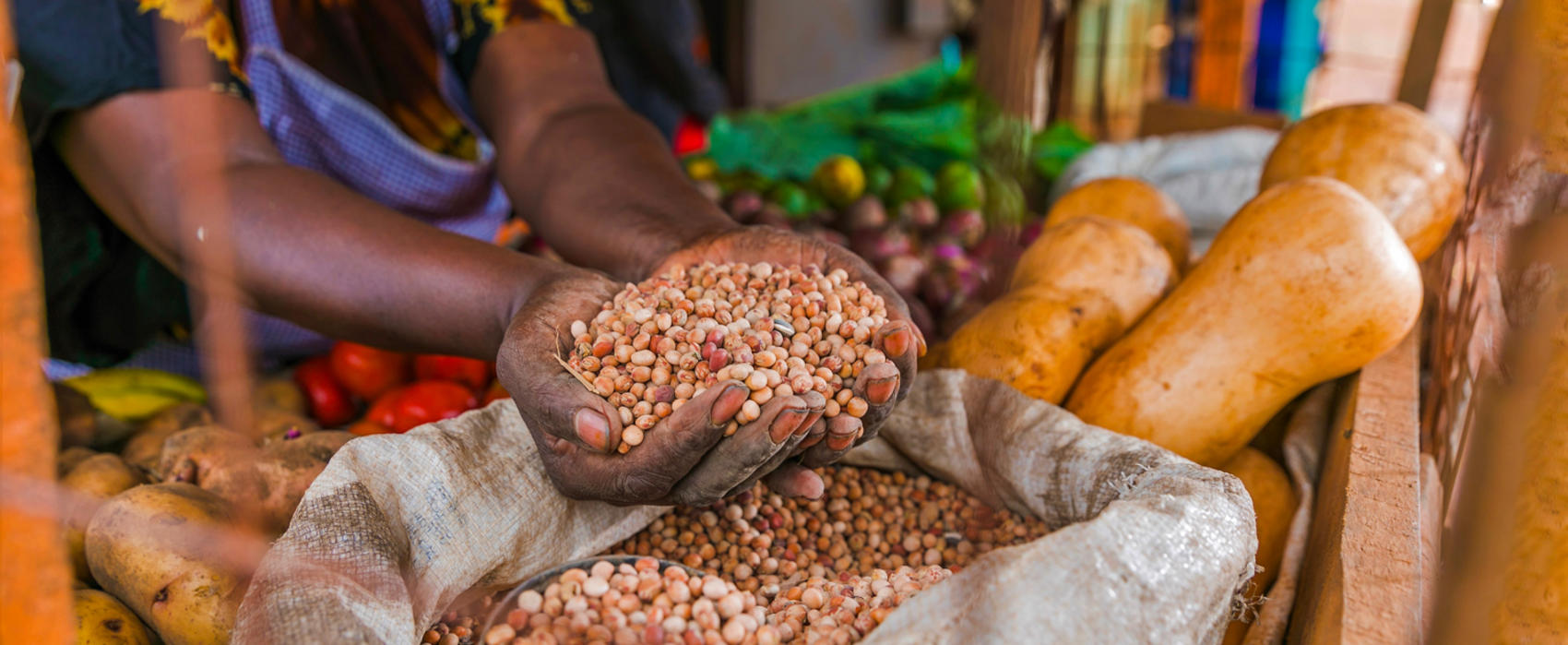
By Kestér Kenn Klomegâh
Global food security, especially in Africa, has been in the media publications these past few months. While a few outspoken African leaders shifted blame to the Russia-Ukraine crisis, others focused on spending the state budget to import food to calm rising discontent among the population. Some experts and international organizations have also expressed the fact that African leaders have to adopt import substitution mechanisms and use their financial resources to strengthen agricultural production systems.
At the G7 Summit in June, President Biden and G7 leaders announced over $4.5 billion to address global food security, over half of which will come from the United States. This $2.76 billion in U.S. government funding will help protect the world’s most vulnerable populations and mitigate the impacts of growing food insecurity and malnutrition, including from Russia’s war in Ukraine, by building production capacity and more resilient agriculture and food systems around the world and responding to immediate emergency food needs.
U.S. Congress allocated $336.5 million to bilateral programs for Sub-Saharan African countries, including Burkina Faso, the Democratic Republic of the Congo, Ethiopia, Ghana, Guinea, Kenya, Liberia, Madagascar, Malawi, Mali, Mozambique, Niger, Nigeria, Rwanda, Senegal, Sierra Leone, Somalia, South Sudan, Tanzania, Uganda, Zambia, and Zimbabwe and regional programs in southern Africa, west Africa, and the Sahel.
Also, of this $2.76 billion, USAID is programming $2 billion in emergency food security assistance over the next three months. As of August 8, 2022, the U.S. has provided nearly $1 billion specifically for countries in Africa toward this $2 billion commitment, including the Central African Republic, the Democratic Republic of the Congo, Ethiopia, Kenya, Mali, Mozambique, Nigeria, Somalia, South Sudan, and Uganda.
That compared, Russia plans to earn (revenue) $33 billion by the end 0f 2022 through massive export of grains and meat poultry to Africa. The plan aims to marginalise local production, cut out foreign contributions to support livelihoods through local production and make African leaders spend their hard-earned revenue on food imports instead of supporting agricultural production.
Primarily, Russia needs to export an estimated 50-60 million tonnes of grain this agricultural year from July 2022 to June 2023. Agriculture Minister Dmitry Patrushev and Algerian Agriculture and Rural Development Minister Mohamed Abdelhafid Henni, co-chairing the Russian-Algerian Intergovernmental Commission in late September, agreed on increased wheat exports from Krasnodar Territory and Siberia regions to Algeria.
The Agriculture Ministry’s Agroexport Center said in a report that Russia has to increase exports to Angola. The estimated potential for Russian agribusiness exports to Angola is $100 million per year, including grains, foremost wheat, soybean oil, beef, poultry, edible pork by-products, yeast and other agribusiness products.
Agroexport Federal Center for Development of Agribusiness Exports, in close partnership collaboration with Trust Technologies and the business expert community, drew up a concept for the development of exports of principal agricultural products (grain, dairy, butter, meat and confectionery products) to promising markets of African countries. It is estimated to build on the total volume of exports to African countries, which in 2021 amounted to $33 billion.
“The African continent is an interesting and promising area for developing Russian food exports. However, when working in this market, it is important to take into account a number of factors: strong differences in the level of welfare of the population, political instability in some countries, state regulation of prices for a number of goods, et cetera,” Agroexport head Dmitry Krasnov was quoted as saying in the statement and reported by Russian media including the Interfax News Agency.
By increasing grain exports to countries in Africa, Russia aims to enhance the competitiveness of Russian agricultural goods in the African market. According to the business concept report, five African countries have been identified and chosen as target markets for the delivery of agricultural products. These are Angola, Cameroon, Ethiopia, Ghana, Kenya, Mauritius, Nigeria, Tunisia and South Africa.
In sharp contrast to food-importing African countries, Zimbabwe has increased wheat production, especially during this crucial time of the current Russia-Ukraine crisis. This achievement was attributed to efforts in mobilizing local scientists to improve the crop’s production. Zimbabwe is an African country that has been under Western sanctions for 25 years, hindering imports of much-needed machinery and other inputs from driving agriculture.
At the African Green Revolution Forum (AGRF) summit held in September in Rwanda, President Emmerson Mnangagwa told the gathering that “we used to depend on importation of wheat from Ukraine in the past, but we have been able to produce our own. So, the crisis in that country has not affected us. There is an urgent need to adopt a progressive approach and re-purpose food policies to address the emerging challenges affecting our entire food systems.”
There are various local efforts to attain food security on the continent. For instance, the African Development Bank’s (AfDB) African Emergency Food Production Facility (AEFPF) to increase the production of climate-adapted wheat, corn, rice, and soybeans over the next four growing seasons in Africa. The International Fund for Agricultural Development’s (IFAD) Crisis Response Initiative (CRI) helps protect livelihoods and build resilience in rural communities. The Africa Adaptation Initiative (AAI) to develop a pipeline of bankable projects in Africa to leverage private equity.
The Africa Risk Capacity (ARC) Africa Disaster Risk Financing Programme (ADRiFi) helps African governments to respond to food system shocks by increasing access to risk insurance products. A fertilizer efficiency and innovation program to enhance fertiliser use efficiency in countries where fertilizer tends to be over-applied. Support for the UN Food and Agriculture Organization (FAO) will fund soil mapping spanning multiple countries to provide information allowing for wiser water usage, greater fertilizer conservation, and improved climate resilience impacts.
Significant to note that during the business conference held at the Atlantic Council’s Africa Center on April 22, African Development Bank Group President Dr Akinwumi Adesina, speaking as a guest of the Washington, DC, US-based think tank, called for an increased sense of urgency amid what he described as a once-in-a-century convergence of global challenges for Africa, including a looming food crisis. The continent’s most vulnerable countries have been hit hardest by conflict, climate change and the pandemic, which upended economic and development progress in Africa.
Adesina said the ramifications of Russia’s invasion of Ukraine on Feb. 24 spread far beyond the conflict to other parts of the world, including Africa. Russia and Ukraine supply almost 30% of global wheat exports, and the price has surged nearly 50% globally, reaching levels reminiscent of the 2008 global food crisis.
Adesina said the tripling of fertilizer costs, rising energy prices and rising costs of food baskets, could worsen in Africa in the coming months. He noted that wheat made up 90% of Russia’s $4 billion in exports to Africa in 2020, and of Ukraine’s nearly $3 billion exports to the continent, 48% was wheat and 31% was maize.
Adesina said Africa must rapidly expand its production to meet food security challenges. “The African Development Bank is already active in mitigating the effects of a food crisis through the African Food Crisis Response and Emergency Facility, a dedicated facility being considered by the bank to provide African countries with the resources needed to raise local food production and procure fertilizer,” Adesina said. “My basic principle is that Africa should not be begging. We must solve our own challenges ourselves without depending on others…”
The bank chief spoke about early successes through the African Development Bank’s innovative flagship initiative, the Technologies for African Agricultural Transformation (TAAT) program, which operates across nine food commodities in more than 30 African countries. TAAT has helped to rapidly boost food production at scale on the continent, including the production of wheat, rice and other cereal crops.
“We are putting our money where our mouth is,” Adesina said. “We are producing more and more of our food. Our Africa Emergency Food Production Plan will produce 38 million metric tons of food.” He said TAAT already delivered heat-tolerant wheat varieties to 1.8 million farmers in seven countries, increasing wheat production by over 1.4 million metric tons and a value of $291 million. He added that during the drought in southern Africa in 2018 and 2019, TATT was able to help deploy heat-tolerant maize varieties, which were cultivated by 5.2 million households on 841,000 hectares.
In a similar argument and direction, the World Bank has also expressed worry over sub-Saharan African countries’ high expenditure on food imports that could be produced locally using their vast uncultivated lands and the devastating impact on budgets due to rising external borrowing. According to the bank, it is crucial to increase the effectiveness of current resources to expand and support local production, especially in agriculture and industry sectors during this crucial period of the Russia-Ukraine crisis.
In a press release titled – African Governments Urgently Need to Restore Macro-Economic Stability and Protect the Poor in a Context of Slow Growth, – High Inflation, the global lender said African governments spent 16.5 per cent of their revenues servicing external debt in 2021, up from less than 5 per cent in 2010. Eight out of 38 IDA-eligible countries in the region are in debt distress, and 14 are at high risk of joining them.
In late May 2022, the IMF and World Bank considered 16 low-income African countries at high risk of debt distress, while 7 countries – Chad, Republic of the Congo, Mozambique, São Tomé and Príncipe, Somalia, Sudan and Zimbabwe – were already in debt distress. Bright spots, such as Côte d’Ivoire and Rwanda, are expected to exhibit rapid growth in 2022, the report said. However, 33 African countries need external assistance for food, and acute food insecurity is likely to worsen in 18 of these economies in the next months.
With the above facts, African leaders have to demonstrate a higher level of commitment to tackling post-pandemic challenges and the Russia-Ukraine crisis that has created global economic instability and other related severe consequences. And this requires collaborative action and a much stronger pace of transformation to cater for the needs of the population of over 1.3 billion in Africa.
Máximo Torero, the chief economist of the Food and Agriculture Organization, has observed that African policies have relatively failed to alleviate food security problems. It has emphasised the fragility of over-dependence on a globalised agricultural system. To achieve a more integrated and regionalized agricultural system, coordinated public policy responses are needed to support agribusiness. These responses must ensure small and medium-sized farmers are included.
Action can be taken at a regional level too. And it would help identify issues relating to market access, border and transport-related problems, and possible anticompetitive behaviour. The integration of regional economies is one vehicle for alleviating pervasive food security issues. But regional integration can’t be achieved without the appropriate support for investment in production, infrastructure and capabilities.
An estimate suggests that rich Africans were holding a massive $500 billion in tax havens. Africa’s people are effectively robbed of wealth by an economy that enables a tiny minority of Africans to get rich by allowing wealth to flow out of Africa.
According to our basic research, Africa is not poor, as foreign players are stealing its wealth. But, there is $203 billion leaving the continent. Based on a set of new figures, sub-Saharan Africa is a net creditor to the rest of the world to the tune of more than $41 billion. Then there’s the $30 billion that these corporations repatriate – profits they make in Africa but send back to their home country or elsewhere to enjoy their wealth.
In an opinion article published in September by Foreign Policy in Focus, Imani Countess wrote that every year nearly $90 billion of African resources are lost to the global north in Illicit Financial Flows or IFFs. It isn’t just the Russians, but also U.S.-based corporations and others throughout the global north. Russians are flying an unprecedented huge quantity of gold out of Sudan and precious resources from the extractive industry out of the Central African Republic and Guinea.
According to him, “the financial mechanisms that facilitate illicit financial flows are complex, most often through opaque deals and contracts involving government officials. People in these plundered communities do not have a voice. They face harm to local biodiversity, loss of their livelihoods, and a lack of meaningful benefits, especially in providing sustainable development. The losses are breathtaking and heartbreaking, representing revenue that should be invested in sustainable development in Africa.”
Dr Richard Munang is UNEP’s Africa Regional Climate Change Programme Coordinator, and Ms Zhen Han is a doctoral student at Cornell University, wrote in a joint article that people living in extreme poverty in sub-Saharan Africa increased from 290 million in 1990 to 414 million in 2010. The region currently spends more than $35 billion on food imports annually.
Of the challenges currently facing the continent, climate change has greatly slowed down Africa’s progress towards MDGs, especially those related to eliminating hunger and poverty, improving human health and ensuring environmental sustainability. This is because climate change disproportionately affects the livelihoods of the most vulnerable population by increasing the occurrence of natural disasters, affecting the continuity of ecosystem functioning and the ecosystem services it provides. Climate change also damages the critical natural resources that vulnerable communities depend on.
Establishing food security is important for millions of people facing hunger in Africa and is crucial for sustainable economic development and the long-term prosperity of the continent. Therefore, addressing food security in a changing climate is key for a rising Africa in the 21st century. From the discussions above and various perspectives, African leaders have to focus and redirect both human and financial resources toward increasing local production, the surest approach to attain sustainable food security for the over 1.3 billion population in Africa, and this falls within the framework of the Agenda 2063 of the African Union.
World
African Visual Art is Distinguished by Colour Expression, Dynamic Form—Kalalb

By Kestér Kenn Klomegâh
In this insightful interview, Natali Kalalb, founder of NAtali KAlalb Art Gallery, discusses her practical experiences of handling Africa’s contemporary arts, her professional journey into the creative industry and entrepreneurship, and also strategies of building cultural partnership as a foundation for Russian-African bilateral relations. Here are the interview excerpts:
Given your experience working with Africa, particularly in promoting contemporary art, how would you assess its impact on Russian-African relations?
Interestingly, my professional journey in Africa began with the work “Afroprima.” It depicted a dark-skinned ballerina, combining African dance and the Russian academic ballet tradition. This painting became a symbol of cultural synthesis—not opposition, but dialogue.
Contemporary African art is rapidly strengthening its place in the world. By 2017, the market was growing so rapidly that Sotheby launched its first separate African auction, bringing together 100 lots from 60 artists from 14 foreign countries, including Algeria, Ghana, Mali, Nigeria, Senegal, and others. That same year during the Autumn season, Louis Vuitton Foundation in Paris hosted a major exhibition dedicated to African art. According to Artnet, sales of contemporary African artists reached $40 million by 2021, a 434% increase in just two years. Today, Sotheby holds African auctions twice a year, and in October 2023, they raised $2.8 million.
In Russia, this process manifests itself through cultural dialogue: exhibitions, studios, and educational initiatives create a space of trust and mutual respect, shaping the understanding of contemporary African art at the local level.
Do you think geopolitical changes are affecting your professional work? What prompted you to create an African art studio?
The international context certainly influences cultural processes. However, my decision to work with African themes was not situational. I was drawn to the expressiveness of African visual language—colour, rhythm, and plastic energy. This theme is practically not represented systematically and professionally in the Russian art scene.
The creation of the studio was a step toward establishing a sustainable platform for cultural exchange and artistic dialogue, where the works of African artists are perceived as a full-fledged part of the global cultural process, rather than an exotic one.
To what extent does African art influence Russian perceptions?
Contemporary African art is gradually changing the perception of the continent. While previously viewed superficially or stereotypically, today viewers are confronted with the depth of artistic expression and the intellectual and aesthetic level of contemporary artists.
Portraits are particularly impactful: they allow us to see not just an abstract image of a “continent,” but a concrete personality, character, and inner dignity. Global market growth data and regular auctions create additional trust in African contemporary art and contribute to its perception as a mature and valuable movement.
Does African art reflect lifestyle and fashion? How does it differ from Russian art?
African art, in my opinion, is at its peak in everyday culture—textiles, ornamentation, bodily movement, rhythm. It interacts organically with fashion, music, interior design, and the urban environment. The Russian artistic tradition is historically more academic and philosophical. African visual art is distinguished by greater colour expression and dynamic form. Nevertheless, both cultures are united by a profound symbolic and spiritual component.
What feedback do you receive on social media?
Audience reactions are generally constructive and engaging. Viewers ask questions about cultural codes, symbolism, and the choice of subjects. The digital environment allows for a diversity of opinions, but a conscious interest and a willingness to engage in cultural dialogue are emerging.
What are the key challenges and achievements of recent years?
Key challenges:
- Limited expert base on African contemporary art in Russia;
- Need for systematic educational outreach;
- Overcoming the perception of African art as exclusively decorative or ethnic.
Key achievements:
- Building a sustainable audience;
- Implementing exhibition and studio projects;
- Strengthening professional cultural interaction and trust in African
contemporary art as a serious artistic movement.
What are your future prospects in the context of cultural diplomacy?
Looking forward, I see the development of joint exhibitions, educational programs, and creative residencies. Cultural diplomacy is a long-term process based on respect and professionalism. If an artistic image is capable of uniting different cultural traditions in a single visual space, it becomes a tool for mutual understanding.
World
Ukraine Reveals Identities of Nigerians Killed Fighting for Russia

By Adedapo Adesanya
The Ukrainian Defence Intelligence (UDI) has identified two Nigerian men, Mr Hamzat Kazeem Kolawole and Mr Mbah Stephen Udoka, allegedly killed while fighting as Russian mercenaries in the war between the two countries ongoing since February 2022.
The development comes after Russia denied knowledge of Nigerians being recruited to fight on the frontlines.
Earlier this week, the Russian Ambassador to Nigeria, Mr Andrey Podyolyshev, said in Abuja that he was not aware of any government-backed programme to recruit Nigerians to fight in the war in Ukraine.
He said if at all such activity existed, it is not connected with the Russian state.
However, in a statement on Thursday, the Ukrainian Defence released photographs of Nigerians killed while defending Russia.
“In the Luhansk region, military intelligence operatives discovered the bodies of two citizens of the Federal Republic of Nigeria — Hamzat Kazeen Kolawole (03.04.1983) and Mbah Stephen Udoka (07.01.1988),” the statement read.
According to the statement, both men served in the 423rd Guards Motor Rifle Regiment (military unit 91701) of the 4th Guards Kantemirovskaya Tank Division of the armed forces of the Russian Federation.
UDI said that they signed contracts with the Russian Army in the second half of 2025 – the deceased Mr Kolawole on August 29 and Mr Udoka on September 28.
“Udoka received no training whatsoever — just five days later, on October 3, he was assigned to the unit and sent to the temporarily occupied territories of Ukraine,” the report read.
It added that no training records for Mr Kolawole have been preserved; however, it is highly likely that he also received no military training, but his wife and three children remain in Nigeria.
Both Nigerians, the report added, were killed in late November during an attempt to storm Ukrainian positions in the Luhansk region.
“They never engaged in a firefight — the mercenaries were eliminated by a drone strike,” UDI stated, warning foreign citizens against travelling to the Russian Federation or taking up any work on the territory of the “aggressor state”.
“A trip to Russia is a real risk of being forced into a suicide assault unit and, ultimately, rotting in Ukrainian soil,” the statement read.
In an investigation earlier this month, CNN reported that hundreds of African men have been enticed to fight for Russia in Ukraine with the promise of civilian jobs and high salaries. However, the media organisation uncovered that they are being deceived or sent to the front lines with little combat training.
CNN said it reviewed hundreds of chats on messaging apps, military contracts, visas, flights and hotel bookings, as well as gathering first-hand accounts from African fighters in Ukraine, to understand just how Russia entices African men to bolster its ranks.
World
Today’s Generation of Entrepreneurs Value Flexibility, Autonomy—McNeal-Weary

By Kestér Kenn Klomegâh
The Young African Leaders Initiative (YALI) is the United States’ signature step to invest in the next generation of African leaders. Since its establishment in 2010 by Obama administration, YALI has offered diverse opportunities, including academic training in leadership, governance skills, organizational development and entrepreneurship, and has connected with thousands of young leaders across Africa. This United States’ policy collaboration benefits both America and Africa by creating stronger partnerships, enhancing mutual prosperity, and ensuring a more stable environment.
In our conversation, Tonya McNeal-Weary, Managing Director at IBS Global Consulting, Inc., Global Headquarters in Detroit, Michigan, has endeavored to discuss, thoroughly, today’s generation of entrepreneurs and also building partnerships as a foundation for driving positive change and innovation in the global marketplace. Here are the excerpts of her conversation:
How would you describe today’s generation of entrepreneurs?
I would describe today’s generation of entrepreneurs as having a digital-first mindset and a fundamental belief that business success and social impact can coexist. Unlike the entrepreneurs before them, they’ve grown up with the internet as a given, enabling them to build global businesses from their laptops and think beyond geographic constraints from day one. They value flexibility and autonomy, often rejecting traditional corporate ladders in favor of building something meaningful on their own terms, even if it means embracing uncertainty and financial risk that previous generations might have avoided.
And those representing the Young African Leaders Initiative, who attended your webinar presentation late January 2026?
The entrepreneurs representing the Young African Leaders Initiative are redefining entrepreneurship on the continent by leveraging their unique perspectives, cultural heritage, and experiences. Their ability to innovate within local contexts while connecting to global opportunities exemplifies how the new wave of entrepreneurs is not confined by geography or conventional expectations.
What were the main issues that formed your ‘lecture’ with them, Young African Leaders Initiative?
The main issues that formed my lecture for the Young African Leaders Initiative were driven by understanding the importance of building successful partnerships when expanding into the United States or any foreign market. During my lecture, I emphasized that forming strategic alliances can help entrepreneurs navigate unfamiliar business environments, access new resources, and foster long-term growth. By understanding how to establish strong and effective partnerships, emerging leaders can position their businesses for sustainable success in global markets. I also discussed the critical factors that contribute to successful partnerships, such as establishing clear communication channels, aligning on shared goals, and cultivating trust between all parties involved. Entrepreneurs must be proactive in seeking out partners who complement their strengths and fill gaps in expertise or resources. It is equally important to conduct thorough due diligence to ensure that potential collaborators share similar values and ethical standards. Ultimately, the seminar aimed to empower YALI entrepreneurs with practical insights and actionable strategies for forging meaningful connections across borders. Building successful partnerships is not only a pathway to business growth but also a foundation for driving positive change and innovation in the global marketplace.
What makes a ‘leader’ today, particularly, in the context of the emerging global business architecture?
In my opinion, a leader in today’s emerging global business architecture must navigate complexity and ambiguity with a fundamentally different skill set than what was previously required. Where traditional leadership emphasized command-and-control and singular vision, contemporary leaders succeed through adaptive thinking and collaborative influence across decentralized networks. Furthermore, emotional intelligence has evolved from a soft skill to a strategic imperative. Today, the effective modern leader must possess deep cross-cultural intelligence, understanding that global business is no longer about exporting one model worldwide but about genuinely integrating diverse perspectives and adapting to local contexts while maintaining coherent values.
Does multinational culture play in its (leadership) formation?
I believe multinational culture plays a profound and arguably essential role in forming the kind of leadership required in today’s global business environment. Leaders who have lived, worked, or deeply engaged across multiple cultural contexts develop a cognitive flexibility that’s difficult to replicate through reading or training alone. More importantly, multinational exposure tends to dismantle the unconscious certainty that one’s own way of doing things is inherently “normal” or “best.” Leaders shaped in multicultural environments often develop a productive discomfort with absolutes; they become more adept at asking questions, seeking input, and recognizing blind spots. This humility and curiosity become strategic assets when building global teams, entering new markets, or navigating geopolitical complexity. However, it’s worth noting that multinational experience alone doesn’t automatically create great leaders. What matters is the depth and quality of cross-cultural engagement, not just the passport stamps. The formation of global leadership is less about where someone has been and more about whether they’ve developed the capacity to see beyond their own cultural lens and genuinely value differences as a source of insight rather than merely tolerating them as an obstacle to overcome.
In the context of heightening geopolitical situation, and with Africa, what would you say, in terms of, people-to-people interaction?
People-to-people interaction is critically important in the African business context, particularly as geopolitical competition intensifies on the continent. In this crowded and often transactional landscape, the depth and authenticity of human relationships can determine whether a business venture succeeds or fails. I spoke on this during my presentation. When business leaders take the time for face-to-face meetings, invest in understanding local priorities rather than imposing external agendas, and build relationships beyond the immediate transaction, they signal a different kind of partnership. The heightened geopolitical situation actually makes this human dimension more vital, not less. As competition increases and narratives clash about whose model of development is best, the businesses and nations that succeed in Africa will likely be those that invest in relationships characterized by reciprocity, respect, and long-term commitment rather than those pursuing quick wins.
How important is it for creating public perception and approach to today’s business?
Interaction between individuals is crucial for shaping public perception, as it influences views in ways that formal communications cannot. We live in a society where word-of-mouth, community networks, and social trust areincredibly important. As a result, a business leader’s behavior in personal interactions, their respect for local customs, their willingness to listen, and their follow-through on commitments have a far-reaching impact that extends well beyond the immediate meeting. The geopolitical dimension amplifies this importance because African nations now have choices. They’re no longer dependent on any single partner and can compare approaches to business.
From the above discussions, how would you describe global business in relation to Africa? Is it directed at creating diverse import dependency?
While it would be too simplistic to say global business is uniformly directed at creating import dependency, the structural patterns that have emerged often produce exactly that outcome, whether by design or as a consequence of how global capital seeks returns. Global financial institutions and trade agreements have historically encouraged African nations to focus on their “comparative advantages” in primary commodities rather than industrial development. The critical question is whether global business can engage with Africa in ways that build productive capacity, transfer technology, develop local talent, and enable countries to manufacture for themselves and for export—or whether the economic incentives and power irregularities make this structurally unlikely without deliberate policy intervention.
-

 Feature/OPED6 years ago
Feature/OPED6 years agoDavos was Different this year
-
Travel/Tourism10 years ago
Lagos Seals Western Lodge Hotel In Ikorodu
-

 Showbiz3 years ago
Showbiz3 years agoEstranged Lover Releases Videos of Empress Njamah Bathing
-

 Banking8 years ago
Banking8 years agoSort Codes of GTBank Branches in Nigeria
-

 Economy3 years ago
Economy3 years agoSubsidy Removal: CNG at N130 Per Litre Cheaper Than Petrol—IPMAN
-

 Banking3 years ago
Banking3 years agoSort Codes of UBA Branches in Nigeria
-

 Banking3 years ago
Banking3 years agoFirst Bank Announces Planned Downtime
-

 Sports3 years ago
Sports3 years agoHighest Paid Nigerian Footballer – How Much Do Nigerian Footballers Earn


